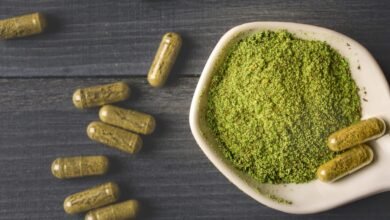11 Health Benefits of Grapefruit

Grapefruit, or Citrus × paradisi, has a harsh flavour and bitter pith (the white line surrounding the fruit), which may be off-putting for folks who are accustomed to sweeter citrus fruits. Nonetheless, grapefruit is a morning staple and a terrific snack at any time of day, and its high water content helps to quench thirst.Grapefruit has several additional potential advantages, including providing vital nutrients that aid with weight management and immune system support.
Health Benefits of Grapefruit
If you use certain drugs, such as those that control your blood pressure or cholesterol, you should avoid or restrict your intake of grapefruit, juice, and supplements. Grapefruit components may cause your body to absorb either few or too many drugs.
Read on to discover about grapefruit’s advantages and hazards, as well as how to include it into your meals and snacks.
Controls Your Blood Sugar
Grapefruit has a low glycemic index (GI), which indicates how rapidly carbohydrates elevate blood sugar.Low-GI foods do not elevate blood sugar as rapidly or significantly as high-GI meals. People with type 2 diabetes may benefit more from eating meals with a low glycemic index (GI).
Read More : Health Benefits of Cantaloupe
Your blood sugar response to meals might vary greatly depending on how much and what you consume. For example, combining carbohydrates, such as grapefruit, with healthy fat and lean protein helps to minimize blood sugar rises.Consult your healthcare practitioner about your post-meal blood sugar objectives.
Has Been Shown To Lower Cancer Risk
Grapefruits provide around 71.8 milligrams of vitamin C per serving. Vitamin C is an antioxidant that reduces cell damage. Some research implies a relationship between increased vitamin C intake and a lower risk of cancer.
Your body creates free radicals, which damage cells when exposed to hazardous chemicals such as radiation or smoke. An imbalance between antioxidants and free radicals may raise the risk of cancer.Benefits of Grapefruit contains vitamin C, which may protect against free radicals and reduce the incidence of bladder, cervical, and renal cell cancer.
Has a High Water Content
Grapefruit is one of the most watery fruits. A cup of pink or red grapefruit, sliced into quarters, has 203 grams of water, or about one cup. The fruit’s water content benefits general health. Your body is around 60% water, which is required for your cells and organs to operate.
Water has many other essential functions, such as:
- Alleviating and preventing constipation
- Maintaining your body temperature
- Protecting your joints
Food accounts for around 20% of your total daily fluid consumption.Benefits of Grapefruit may help you meet your fluid intake goals. Choose the heaviest grapefruits, which often contain the most water.
Helps You Manage Your Weight
Grapefruit may help you lose and maintain your weight if consumed as part of a well-balanced diet. Grapefruit’s high fibre and water content make it good for weight reduction.
One cup of grapefruit sectioned with juice has around 3.7 grams of fibre.Fibre aids in weight loss by adding bulk to your meals, allowing you to stay full for longer durations. The National Institutes of Health (NIH) recommends that women ingest 25 grams of fibre per day, while males consume 38 grams.
Grapefruit is rich in water content yet low in calories.Consuming fewer calories than you burn via regular activity and exercise promotes weight reduction.
Grapefruit itself is not a weight reduction aid.There is insufficient data to promote weight reduction pills including grapefruit extract or peel oil. Before beginning a new supplement, consult with a healthcare physician to discuss the advantages and hazards.
Instead, a well-balanced diet rich in grapefruit and regular exercise may help you lose weight. These lifestyle modifications can lower the risk of health problems such as heart disease, renal disease, type 2 diabetes, and some malignancies.
Is High in Key Nutrients
According to research, eating grapefruit enhances diet quality by increasing consumption of numerous critical nutrients.
For example, grapefruit is a source of nutrients like:
- Fiber
- Magnesium
- Potassium
- Vitamin A
- Vitamin C
One-half of a red or pink grapefruit provides 100% of the daily vitamin C requirement and 35% of the vitamin A requirement. That serving size provides 8% and 5% of the necessary daily fibre and potassium intake, respectively. A diet high in these nutrients promotes lifespan and lowers your chance of chronic diseases such as heart disease, obesity, and type 2 diabetes.
Might Lower Blood Pressure
Grapefruit’s potassium concentration lowers blood pressure.Potassium serves to counteract the negative effects of sodium and relaxes the walls of blood vessels.According to research, even a 10-millimeter reduction in systolic blood pressure (the top number) may reduce heart disease, heart failure, and stroke risk.
It is important to remember that if you are on a blood pressure-lowering medication, you should avoid grapefruit and its juice. Certain medications, such as Adalat CC (nifedipine) and Procardia XL, may interact negatively with grapefruit. Grapefruit may be dangerous if you use a cholesterol-lowering medication like Lipitor (atorvastatin) or Zocor (simvastatin).
Might Treat Infections and Wounds
Grapefruit’s nutrients may help to cure infections and speed up wound healing. For example, some research indicates that grapefruit seed extract has antimicrobial capabilities.
A 2021 research done in vitro (in a lab) discovered that grapefruit seed extract is effective against methicillin-resistant Staphylococcus aureus (MRSA). MRSA is a bacterium that causes staph infections that are resistant to most antibiotics. The researchers suggested that grapefruit seed extract might be a natural alternative to several manufactured medications.
Grapefruit contains vitamin C, which helps to create collagen and increases skin fibroblast development. Collagen is a protein that aids in healing wounds. Dermal fibroblasts are cells that heal the skin after an injury.
Might Boost Your Energy and Mood
The fragrance of grapefruit may be beneficial in aromatherapy, which often involves the use of diffusion sprays and oils. Aromatherapy enhances mood and physical vitality.
Citrus fragrances are prominent in aromatherapy, particularly in essential oils. Some data shows that grapefruit seed essential oil reduces cortisol, the stress hormone.
Red and Pink Grapefruit Are High in Antioxidants
Grapefruit comes in a variety of colours and is packed with nutrients. The pink and red ones, in particular, include beta-carotene and lycopene, which are carotenoids (pigments) that work as antioxidants.The brilliant colours of pink and red grapefruits are due to lycopene.
According to research, consuming carotenoids-rich diets may reduce the risk of heart disease and some malignancies.In general, antioxidants aid to prevent cancer by avoiding free radical damage to cells.
Supports Your Immune System
Each one-cup serving of grapefruit contains high levels of vitamins A and C.Both vitamins boost your immune system. Vitamin C is a vital antioxidant that prevents cell damage.
Vitamins A and C do not assist to prevent colds. Nonetheless, some data shows that vitamin C may reduce the length and intensity of symptoms.
The Peel and Pith Are Good for You
You may not want to discard the outer covering of a grapefruit after peeling it. Grapefruit peels are more antioxidant-rich than the fruit’s inside section.
Grapefruit pith has a more bitter flavour than oranges. If you can stomach the flavour, eating the pith is worthwhile. The pith contains pectin, which is a soluble fibre. Soluble fibre improves blood sugar and cholesterol.Some research shows that soluble fibre may lessen the incidence of colon cancer.
Nutrition of Grapefruit
A cup of pink or red grapefruit, sectioned and juiced, has the following nutrients:
- Calories: 96.6
- Fat: 0.3g
- Sodium: 0mg
- Carbohydrates: 24.6mg
- Fiber: 3.7g
- Added sugars: 0g
- Protein: 1.8g
Risks of Grapefruit
Grapefruit is usually considered safe to ingest, although the fruit, juice, and supplements interact with a wide range of drugs.The Food and Drug Administration mandates that certain drugs state if grapefruit consumption is hazardous. If you are on any drugs, talk to your doctor before eating grapefruit.
Grapefruit mainly interacts with drugs used to decrease blood pressure and cholesterol, as well as to treat irregular heartbeat. Grapefruit may also interfere with several allergy medications. If you eat grapefruit, your body may absorb too few or too many drugs. Too little of the medicine may reduce its effectiveness. Too much of the medicine might have serious negative effects.
You should avoid grapefruit, its juice, and supplements if you have:
- An abnormal heart rhythm: According to research, eating too much grapefruit might trigger abnormalities in your cardiac rhythm.Consuming grapefruit in moderation may be safe if you have an irregular cardiac rhythm. However, if you are taking medicine to treat an irregular heartbeat, see your doctor.
- Hormone sensitivities: Excess grapefruit consumption may boost hormone levels. Grapefruit juice, for example, may inhibit the breakdown of estrogen in your body. As a consequence, your body may absorb an excessive amount of estrogen, producing symptoms such as headaches, irritability, and spotting between periods.
- Menopause: Some women utilize hormone therapy, or estrogen treatment, to alleviate menopausal symptoms. Grapefruit may interfere with hormone treatment by causing your body to absorb too much estrogen. Excess estrogen may raise the chance of developing breast cancer.
It is uncertain if grapefruit is safe to consume when pregnant or nursing. To ensure safety, consult a healthcare practitioner before taking the fruit, juice, or supplements.
Tips for Consuming Grapefruit
Grapefruit may keep for a few weeks if properly preserved.If you expect to consume the grapefruit within a week, leave it on the counter or table. Grapefruit produces its finest flavour when kept at room temperature. If you don’t plan on eating a grapefruit for a few weeks, store it in the refrigerator. To get the most flavour, make sure it’s at room temperature before diving into it.
Read More : How To Fast Healthy Gut 2024
People often eat grapefruit at breakfast, but don’t let that restrict your creativity. If you include grapefruit in a dish, you may have to wait a little longer until your next meal or snack. Grapefruit and other foods high in fibre and water content are known to be satisfying.
Some ways to use grapefruit include:
- If you don’t like the harsh flavour of grapefruit, season it with salt or sugar before broiling it.
- Try grapefruit in salads with avocado, cashews, and citrus vinaigrette.
- To give a pulled pork sandwich a new spin, add grapefruit juice.
Conclusion
Grapefruits are unique among fruits since they provide several health advantages. Grapefruit may increase your nutritional intake, help you avoid hunger, and strengthen your immunity.
If you are using blood pressure or cholesterol reducing drugs, proceed with care. Grapefruit components may influence how your body absorbs drugs, resulting in serious adverse effects.







